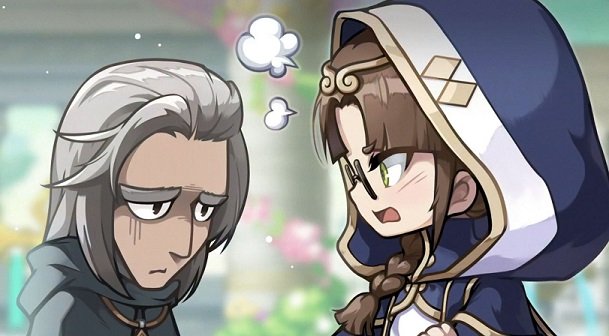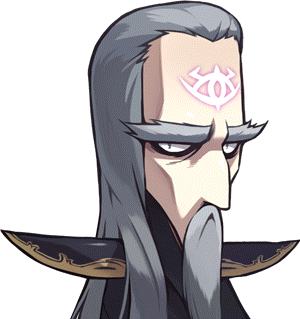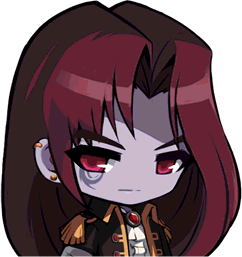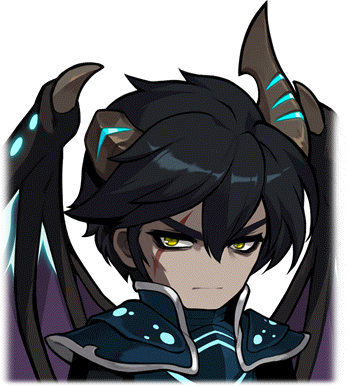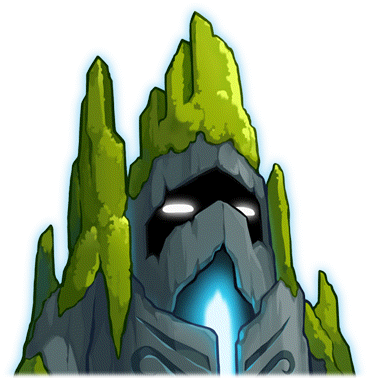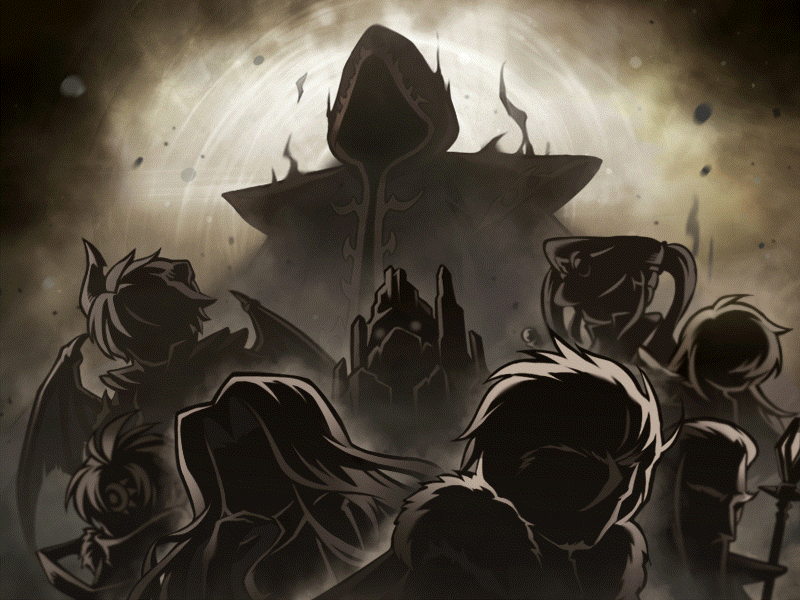
PREVIOUS
NEXT
PART I: BEFORE THE SEALING OF THE BLACK MAGE
Chapter 9: The Seven Commanders
(A/N: This section covers four of the five Commander backstories revealed in the Page of Memory event in the Milestone update. The event gave us backstories on Von Leon, Hilla, Orchid/Lotus, Arkarium, and Will. I kept these backstories in this section, even though some of them chronologically take place before this moment, since I thought that it would be easier for people to find them here. However, I’ve kept Will’s backstory in the Root Abyss section, where I cover his Genesis Weapon backstory, since Will is a new Commander recruited in the present day.)
Believing that the Overseers had placed humanity on an unavoidable destiny for destruction, the Black Mage came to believe that, with no way to save the world from its preordained end, the only path to salvation was to create a new world in its place. Knowing that the Overseers could only shape the universe by using the Transcendents as their proxies, the Black Mage sought to remove their influence from the world that he would create by destroying the Transcendents. In this way, he intended to create a new world free from any preordained end from the Overseers’ machinations.
Though he was standing against a primal power, his sole advantage was that the Overseers, in creating a fixed universe, made it so that all possible futures could be calculated based on known variables. While some mortals possessed the ability to see fragments of the future, the Black Mage was able to take advantage of the fixed variables in the universe to divine all the countless futures based on those fundamental laws. In this way, he could manipulate events to ensure that his plans succeeded. Because of the laws governing the universe, Transcendents were incapable of destroying each other or themselves. To circumvent this, the Black Mage amassed an army of monsters and gathered seven Commanders to lead them.
The King of Spirits, Guwaru, was considered to be the Great Spirit amongst his kind. Having been born from nature itself, Guwaru sought to protect nature from human greed and destruction. When the powers of Alicia and Rhinne - the Transcendent of Life and Transcendent of Time - were stolen by the Black Mage at the end of the war, the balance of the Transcendents shifted the balance of the world towards darkness. Because of this, Guwaru, who was tied to the world itself, grew corrupted and came to serve the Black Mage against his own will.
(A/N: Before the Milestone update, it was said that Guwaru joined the Black Mage after his anger at the humans who disrespected spirits and nature was exploited. Although Guwaru is considered to be a Commander, the Milestone revamp retconned him to be the last of the original Commanders recruited by the Black Mage, as he was corrupted in the very last days of the war when the Black Mage attacked Alicia and Rhinne in order to steal their powers and seal them away.)
The Nova warrior from the world of Grandis, Magnus, arrived in Maple World from an Interdimensional Portal on Grandis. In exchange for becoming a Commander, the Black Mage gave him greater power.
The Demon, having realized that the Black Mage was planning to destroy Maple World, swore his loyalty in exchange for having the Black Mage promise to ensure the safety of his family. He soon ascended in power and became the Black Mage’s most loyal and powerful Commander.
The High Shamaness, Hilla, was the most beautiful and powerful Shamaness of Azwan, holding great influence over the kingdom with the counsel she provided to King Iason, as well as immense magical mastery over illusions. As the High Shamaness, Hilla was tasked with overseeing all spiritual matters of the kingdom, as well as helping select new Shamanesses. With the world slowly beginning to succumb to chaos and darkness, King Iason tasked Hilla with conducting a ritual to help ease the anxieties of Azwan's people. Taking charge of preparations, Hilla was respected and revered by the other Shamanesses for her beauty and talents, though Hilla would humbly claim that her natural gifts had been honed through hard work and perseverance, which she used to help inspire the other Shamanesses to work harder as well.
Over the course of preparations, Hilla noticed that one of the new Shamanesses - Medina - was ostracized by the others for her clumsiness, leaving her alone and discouraged from continuing on. Hilla immediately took Medina under her wing and chastised the other Shamanesses for their gossiping and insults, even offering to help tutor Medina in the dance for the ritual. Though Medina initially turned Hilla down, believing that it would hurt Hilla's reputation to be associated with her, Hilla nevertheless persisted and helped Medina improve in secret. On the day of the ritual, Hilla led the Shamanesses through their dance, with the other Shamanesses praising Medina for her improvement. With the ritual succeeding, Hilla basked in the adoration that she received from the others, and how she shone even brighter amongst the talent she had cultivated.
Hilla leads the ritual in Azwan
As the years passed by, Hilla took great pride in her beauty and talent, selfishly reveling in the praise that the kingdom bestowed upon her. Eventually, however, Hilla began noticing herself aging and feared that she would eventually lose her beauty and power. These insecurities continued taking root deep inside her until the day that the Black Mage himself approached her and offered her eternal youth and the power to resurrect the dead.
Hilla readily betrayed her kingdom, offering the souls of Azwan's people, who were transformed into undead creatures for her army, lining her kingdom with magical totems to continuously reanimate her fallen soldiers. Though her people reviled her as the Red Witch, Hilla no longer cared, as she had all that she desired. Knowing that her power stemmed from the Black Mage, Hilla knew all too well what would happen to her if she were to betray him. Because of this, Hilla never once dared to even think about crossing him, becoming one of his most loyal Commanders in return.
The Lion King of El Nath, Von Leon, was a wise man who ruled El Nath benevolently. In his youth, Von Leon mastered the way of the sword at the behest of his father, believing that it was the only way to protect his people. As a result, however, Von Leon soon came to believe that being a swordsman was his only talent and that he did not have the skills to become a good king. After ascending the throne, Von Leon would often disguise himself as a mercenary named Lian and protect the people of his kingdom from monsters and threats alongside his knights, who would disguise themselves as a mercenary company under his leadership.
On one such occasion, Von Leon and his knights traveled to a distant town, which was under the threat of a terrible monster responsible for defeating several mercenaries who had come to slay it. Von Leon, recognized by the townspeople as Lian from his previous visits, praised him for his kindness, with some even believing that he was far more effective than the king. As Von Leon and his knights trekked through the snowfield to face the Lycanthrope which was terrorizing the village, Von Leon confessed to one of his knights that he was considering giving up his throne and becoming a sellsword permanently, believing that he was unworthy of ruling, despite his knights reassuring him that his wisdom and bravery made him more qualified than anyone else.
After slaying the Lycanthrope in one swift strike, Von Leon ordered his knights to bring the carcass to the villagers, believing that it would help feed them for several days. The villagers praised Von Leon and the knights as their saviors and arranged a festival in the company's honor. As the mercenaries and villagers reveled together, Von Leon - awkwardly walking through the crowd - was approached by a commoner named Ifia, who noticed that Von Leon had not a single flower on him.
Ifia gave a red rose to Von Leon and explained that the village custom was for him to give a flower to someone whom he wished to partner with him for the festival, for which Von Leon gave the rose back to Ifia and asked her to be his partner. As the two spent the festival together, Von Leon grew intrigued by Ifia's kindness and positivity, while Ifia was enchanted by Von Leon's humility as he confessed his doubts about his ability to be anything more than a swordsman.
As the festival came to a close, Ifia - knowing that Von Leon had to leave - grew sad at the thought and hoped to avoid him so that she would not have to see him leave. However, Von Leon - having grown enamored by her beauty and kindness - traveled to the deepest snowfields of El Nath and picked a legendary snow rose, which he brought back to Ifia before proposing to her and revealing his true identity as the king.
Though Ifia wondered whether she would be fit to bring back to court, Von Leon promised her that he would handle any jealousy or resentment towards her, and that all she needed to do was to be happy in his arms. Together, the pair returned to his castle and wed, after which Von Leon built a Rose Garden for his beloved as a wedding gift before ruling together as king and queen.
Von Leon proposes to Ifia
As El Nath was perpetually covered in snow, the kingdom was comparatively poor, though its people were happy. When stories of the Black Mage’s destruction began to spread, the Anti-Black Mage Alliance was formed. The alliance approached Von Leon and requested that he join, but Von Leon refused to involve himself, as he didn’t want to create a target on his kingdom, believing that the Black Mage would leave them alone since the kingdom had little to offer. After being corrupted and driven to insanity by the Black Mage’s forces, the alliance mindlessly stormed Von Leon’s castle, resulting in Ifia’s death. In despair, Von Leon sold his soul to the Black Mage in exchange for the power to exact revenge on those who destroyed his kingdom and his true love.
(A/N: It’s heavily implied that Hilla is the one who corrupted the alliance, as the Milestone update emphasizes her ability to use illusion magic, and the Winter Bard storyline shows Hilla being the one who recruits Von Leon as a Commander. As a heads up, the Anti-Black Mage Alliance is an entirely separate organization from the Maple Alliance of the present day.)
The Spirits of Darkness, Orchid and Lotus, became his twin Wing Masters, to whom he also granted the power to manipulate gravity. During their time as spirits, Orchid would often coax Lotus into playing pranks on humans who wandered in the Forest of Peace. On one such occasion, Orchid overheard a human talking about gathering food for a festival. Intrigued, Orchid convinced Lotus to follow the human back to his camp, where they found a gathering of humans, both young and old, celebrating and enjoying themselves. Wishing to partake in the festivities, Orchid and Lotus possessed stuffed rabbits held by two different children, remaining still during the day and exploring the campsite at night.
Orchid was deeply interested in human food, drinks, and merriment, causing her to wish that she could become a human and experience such things for herself. While inside the rabbit dolls, Orchid and Lotus were carried around by the two children, one of whom was the son of a hunter, and the other was the daughter of a musician. In the hands of the girl, Orchid was enchanted by her father's wondrous descriptions of beautiful places across the world, such as floating castles, golden sand, and fluffy snow. Meanwhile, Lotus listened to the hunter giving sober warnings to his son about the struggles of survival and the hardships that he would have to deal with from being forced to grow up too soon.
Orchid and Lotus listen to the joys and sorrow of humanity
Later on, Orchid and Lotus began discussing what they had heard, with both of them having differing stances on being human. Whereas Lotus believed that being human was filled with sorrow and hardship, noting the dead, animalistic eyes in the hunter and his son, Orchid was convinced that being human was to experience joy and possibility, dismissing Lotus' concerns about death by claiming that it was unrealistic that humans would ever worry about a natural part of their lifecycle. Convinced by Orchid's entreating, Lotus agreed with her that they ought to become human, ultimately leading them to make a deal with the White Mage.
The High Priest of the Goddess Rhinne, Arkarium, was once the most devout of the Goddess’ priests. In his youth, Arkarium was a cunning and ambitious young man, passing the entrance exam to become a Guardian of Time with flying colors. Despite this, Arkarium frequently looked down upon others, particularly when he could derive no use out of them. On his first day at the Temple of Time, Arkarium sneered at the other trainees, who quickly noticed his abhorrent personality. Hoping to find ways to harness the power of time, Arkarium decided to speak with the High Priests of the temple.
His conversation with the High Priest of Memory proved to be fruitless to him after hearing the priest's explanation about the power of memory being capable of changing one's future, as well as giving strength through the comfort of happy reminiscences. Arkarium quickly realized that the kind of power that the High Priest was speaking about was nothing like what he was seeking, while the High Priest realized that Arkarium's ambitions made him dangerous.
He then spoke with the High Priest of Regret, who had overheard his conversation with the High Priest of Memory. The High Priest told Arkarium that she believed it to be a waste of her time to speak with him, as it was clear that he was a close-minded individual. She warned Arkarium that his actions were irreversible and that he could not escape his regrets once the consequences followed. However, Arkarium dismissed her beliefs and claimed that he could not feel regret, as he only ever made correct decisions.
Finally, Arkarium spoke with the High Priest of Oblivion, who noted that Arkarium was a troublemaker and warned him that he was nothing but a finite candle that would someday be extinguished like all mortals. However, Arkarium scoffed and claimed that he intended to burn brightly forever, dismissing the High Priest as a fool who had lost himself to oblivion. Believing all the High Priests to be useless, Arkarium hoped to depose them all and become the head of the temple as quickly as possible.
The next day, Arkarium - after getting into an argument with the disgruntled trainees - was asked to go for a walk by the Head Priestess, Pietta, who noted that Arkarium's ambition to claim the power of time for himself made him a danger to the temple. She told Arkarium that his ambition was needed at the temple, as the Guardians of Time were stuck in their ways from spending so much time in the Gate of the Past - the only accessible parts of the temple. However, she noted that the power of time was dangerous, and that even Rhinne herself would wield that power with great caution. Though Arkarium apologized to Pietta and the other priests, he secretly sneered at how easily they believed his insincere apology, vowing that he would reach the pinnacle of power and get exactly what he deserved.
Pietta scolds Arkarium
Over the years, Arkarium ascended to the rank of High Priest after the former High Priest resigned in protest to the experiments in Kritias, for whom the Guardians of Time had been summoned by King Hekaton. After the failed Ascendancy ritual, Arkarium continued to serve Rhinne in the Temple of Time until he had a vision of the future in which the Black Mage would reign victorious. Choosing to serve the winning side, he swore his loyalty to the Black Mage, betraying Rhinne and becoming a Commander.
With his Commanders gathered, the Black Mage gained the forces needed to battle the other Transcendents. However, the greatest problem that remained was how he would be able to destroy himself. In all possible futures, there was no situation in which he, as a Transcendent, could be killed. He knew that he needed to create a being who could change fate, and so he decided to create an Adversary.
Just as in eons past during the Ancient War, a mortal who bonded with a Godsphere would gain a power greater than that of the Ancient Gods and the Transcendents alike. Though he knew that he could create an Adversary, he also knew that they would be the most unpredictable variable in his plan, as the Adversary needed to be pushed to their very limits to gain the determination needed to activate the power of the Godsphere. In order to force the Adversary into awakening that power at the critical moment, the Black Mage planned to subliminally influence their decisions.
(A/N: This was done through things like having Lucid manipulate the Gate to the Future in order to show the Alliance that they would ultimately lose. Because of this, the Alliance became all the more determined to find a way to change the future.)
As the Godspheres operated on the collective determination of the masses, he made it a priority to push the world into resisting the idea of a fixed future, as their strong desire would be channeled through the Godsphere as the Adversary championed their strongest wish. Simultaneously, he promised his Commanders a place in his new world order, though he secretly intended to have them eliminated before they realized that he intended to destroy everything. In this way, he would force the people into rallying against him, while also keeping his Commanders in line.
To carry out the Genesis Ritual, the Black Mage needed the powers of creation and destruction, along with a high volume of pure Erdas. To obtain creation and to aggregate a high concentration of Erdas, he needed to create a convergence of the three worlds, which would allow him to not only siphon the Erdas generated from the collision, but also steal the powers of creation from another Transcendent of Light.
As a world without active Transcendents automatically sought out another world to merge with in order to maintain its balance of Transcendents, the Black Mage planned to seal the other Transcendents of Maple World, as well as himself. He began a war of conquest with his Commanders and planned to use them to fight against the other Transcendents, while simultaneously drawing out the very heroes who would seal him.
Orchid
Wing Master
Lotus
Wing Master
Arkarium
Guardian of Time
The Demon
Black Mage’s right hand
Magnus
Nova traitor
Von Leon
Lion King
Hilla
Shamaness of Azwan
Guwaru
King of Spirits
PREVIOUS
NEXT



